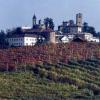-
Welcome to the eG Forums, a service of the eGullet Society for Culinary Arts & Letters. The Society is a 501(c)3 not-for-profit organization dedicated to the advancement of the culinary arts. These advertising-free forums are provided free of charge through donations from Society members. Anyone may read the forums, but to post you must create a free account.
Italian Cuisine: A Cultural History
-
Similar Content
-
- 51 replies
- 11,809 views
-
- 296 replies
- 30,663 views
-
- 8 replies
- 358 views
-
- 226 replies
- 18,445 views
-
- 3 replies
- 560 views
-
-
Recently Browsing 0 members
- No registered users viewing this page.







Recommended Posts